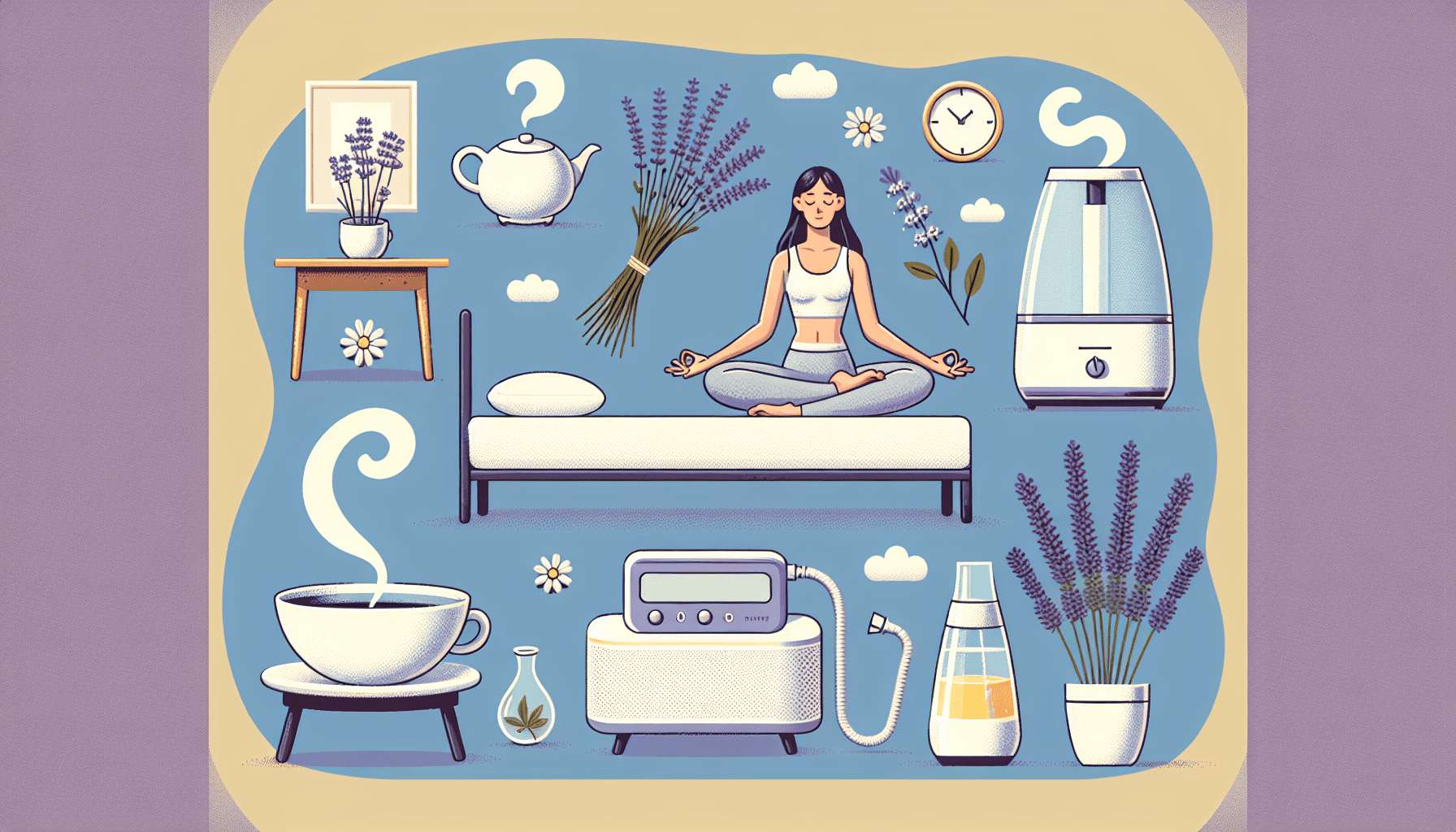Are you tired of struggling with the debilitating symptoms of sleep apnea? Look no further, because we have compiled the top 5 natural remedies that can help you finally find relief. From simple lifestyle changes to herbal supplements, these remedies have been proven to reduce sleep apnea symptoms and improve overall sleep quality. Say goodbye to restless nights and hello to a more peaceful slumber with these effective natural solutions.

1. Weight loss
Maintaining a healthy weight is crucial when it comes to managing sleep apnea symptoms. Excess weight, especially around the neck area, can contribute to narrowed airways and make it more difficult for air to flow freely during sleep. Shedding those extra pounds can not only improve your overall health, but it can also significantly reduce the severity of your sleep apnea.
To tackle weight loss effectively, it’s important to adopt a well-rounded approach. Incorporate a balanced and nutritious diet into your daily routine, focusing on whole foods such as fruits, vegetables, lean proteins, and whole grains. This will help you maintain a calorie deficit, which is key for losing weight. Additionally, consider incorporating regular exercise into your routine, as it can further boost your weight loss efforts.
2. Sleeping position
Your sleeping position plays a significant role in managing sleep apnea symptoms. Sleeping on your side can help keep your airways open and prevent obstruction during sleep. This position allows gravity to work in your favor, reducing the likelihood of your tongue or soft tissues from blocking your airway.
If you find it challenging to stay on your side throughout the night, consider investing in a body pillow or specially designed pillows that can provide support and maintain the desired sleeping position. Another helpful tip is to elevate your head while sleeping, as this can help ensure better airflow and minimize the occurrence of apnea episodes. However, it’s important to note that simply propping up regular pillows may not be as effective in maintaining an elevated position as compared to using specifically designed wedge pillows.
It’s equally important to avoid sleeping on your back. This position can cause your tongue and soft tissues to collapse into your airway, leading to episodes of apnea. To train yourself to avoid this position, you can try sewing a tennis ball into the back of your pajama top. This discomfort will discourage you from rolling onto your back during sleep.
3. Regular exercise
Regular exercise not only contributes to weight loss, but it also plays a crucial role in managing sleep apnea symptoms. Engaging in exercises that strengthen the muscles in your throat and upper airway can help keep them open during sleep, reducing the occurrence of apnea episodes.
Incorporate exercises that target the muscles in your mouth, throat, and tongue, such as tongue and throat exercises, singing, and playing wind instruments. Strengthening these muscles can help prevent them from collapsing and obstructing your airway.
Furthermore, engaging in moderate-intensity aerobic exercise like walking, cycling, or swimming can also have a positive impact on your sleep apnea. Regular exercise can improve your overall sleep quality, allowing you to fall asleep faster and experience deeper, more restful sleep.
4. Avoiding alcohol and sedatives
Alcohol and sedatives can have a detrimental effect on your breathing patterns during sleep, making sleep apnea worse. These substances relax the muscles in your throat and airway, which can cause them to collapse and obstruct your airway during sleep.
If you’re a sleep apnea sufferer, it’s crucial to avoid consuming alcohol in the evening, especially close to bedtime. Similarly, discuss any sedatives or sleep aids you may be taking with your healthcare provider, as they may be exacerbating your symptoms. Together, you can explore alternative relaxation techniques that won’t compromise your airway’s integrity.
Instead of relying on alcohol or sedatives for relaxation, consider trying out techniques such as meditation, deep breathing exercises, or listening to calming music. These methods can help you unwind and prepare your mind and body for a more peaceful sleep, without the negative impact on your breathing patterns.

5. Natural remedies and lifestyle changes
In addition to the aforementioned strategies, there are several natural remedies and lifestyle changes that can complement your sleep apnea management plan.
Using essential oils, such as lavender or peppermint, can create a soothing atmosphere in your bedroom and promote relaxation. You can incorporate them by using a diffuser or adding a few drops to your pillowcase. However, consult with a healthcare professional before using essential oils, as they may interact with certain medications or have adverse effects for some individuals.
Practicing deep breathing exercises can also help you relax and improve your overall sleep quality. Taking deep, slow breaths before bed or during a moment of stress can calm your mind and body, reducing the likelihood of apnea episodes during sleep.
Maintaining a consistent sleep schedule is another important aspect of managing sleep apnea. Go to bed and wake up at the same time each day to regulate your body’s internal clock. This can help improve the quality of your sleep and reduce the frequency of apnea episodes.
By combining these natural remedies and lifestyle changes with the previously mentioned strategies, you can significantly reduce sleep apnea symptoms and improve your overall sleep quality. Remember, it’s always advisable to consult with a healthcare professional for personalized advice and guidance tailored to your specific needs.
